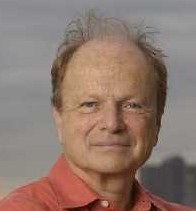Freely Revealing Innovations
Asheville, North Carolina, is a beautiful town tucked in among the Blue Ridge Mountains, and is also a center of "Open Source" software development. Small "boutique" software development firms thrive in a community where innovations are freely communicated, not hoarded and patented. The basic proposition is this:
I invent a useful product like software. I share the invention freely and all information about it so that anyone can change it, and improve it. I, then, can use their improvements at no cost to me. The more people involved in the process, the more valuable the core, continually improving product is.
How do I, the original inventor, make any money? It happens through the application of the technology to specific needs, and sometimes because I become the expert on the product and get paid for my expertise.
Seems kind of idealistic and "hippiesque," doesn't it? But wait, how many corporations are using Linux for their web servers? A lot! It was news to me that this sort of freely sharing approach is nothing new in industry. It happens all the time, going all the way back to the beginnings of the industrial revolution.
 Professor Eric Von Hippel, the Head of Innovation and Entrepreneurship at MIT's Sloan School of Management, has written a persausive (and free) online book called Democritizing Innovation http://web.mit.edu/evhippel/www/democ.htm, in which he discusses in detail the history and advantages of freely sharing innovations. I particularly found Chapter 6 -
Professor Eric Von Hippel, the Head of Innovation and Entrepreneurship at MIT's Sloan School of Management, has written a persausive (and free) online book called Democritizing Innovation http://web.mit.edu/evhippel/www/democ.htm, in which he discusses in detail the history and advantages of freely sharing innovations. I particularly found Chapter 6 -"Why Users Often Freely Reveal Their Innovations" compelling. Here's a quote:
"---free revealing is often the best practical option available to user innovators. Harhoff, Henkel, and von Hippel (2003) found that it is in practice very difficult for most innovators to protect their innovations from direct or approximate imitation. This means that the practical choice is typically not the one posited by the private investment model: should innovators voluntarily freely reveal their innovations, or should they protect them? Instead, the real choice facing user innovators often is whether to voluntarily freely reveal or to arrive at the same end state, perhaps with a bit of a lag, via involuntary spillovers. The practical case for voluntary free revealing is further strengthened because it can be accomplished at low cost, and often yields private benefits to the innovators. When benefits from free revealing exceed the benefits that are practically obtainable from holding an innovation secret or licensing it, free revealing should be the preferred course of action for a profit-seeking firm or individual."
In future articles, I plan to interview some "Open Source" practitioners to see how they live and thrive in a freely sharing environment. In the meantime, you might want to check out a technology portal produced by Asheville volunteers in about a month by using open source software www.meetthegeeks.net .

0 Comments:
Post a Comment
<< Home